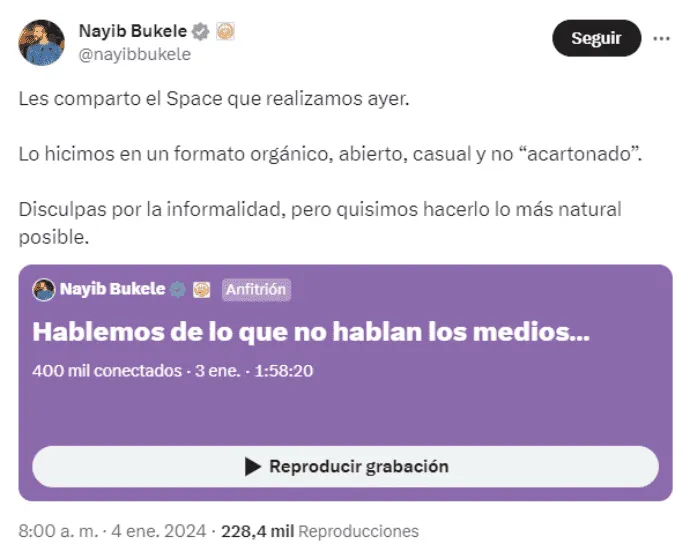Members of human rights organizations in El Salvador described Nayib Bukele’s words as false and unfortunate in an X-Space last Wednesday.

As “unfortunate,” “false” and who “contribute to the manipulation of public opinion” were described the statements that the candidate for president Nayib Bukele expressed against the Inter-American and other international organizations last Wednesday night.
“It would seem that these institutions have the mission of keeping us in underdevelopment. If they see the sentences they give it, it’s like if they try to have in our countries, it’s like the obligation to be in underdevelopment,” Bukele said during a Space, from social network X, in which he answered some follower questions.
According to Jorge Rodriguez, of the University Observatory for Human Rights of the UCA, the president’s statements on the IACHR and international organizations “are false” and “contribute to the manipulation of public opinion.”
“What it seeks is to contribute to deepening an unfavourable opinion towards human rights and the bodies that ensure compliance, based on false dilemmas such as the president referred to by opposing democracy and human rights,” Rodriguez said.
Then Abraham Ábrego, Christ’s director of strategic litigation, said that Bukele’s statements “are unfortunate and misrepresented.”
“In relation to the role played by human rights bodies, he should remember that El Salvador has ratified several international covenants that commit the State to comply with human rights,” he said.
On April 6, the IACHR called on the State of El Salvador to restore the full validity of the rights and guarantees suspended one year after the entry into force of the emergency regime installed for reasons of citizen security.
In response, Bukele had criticism of the Commission and called on other Latin American countries to monitor the work of the international organization on the issue of security in El Salvador.
The space. On Wednesday night, Nayib Bukele answered some questions at a Space on social network X.
This article has been translated from the original which first appeared in La Prensa Grafica

